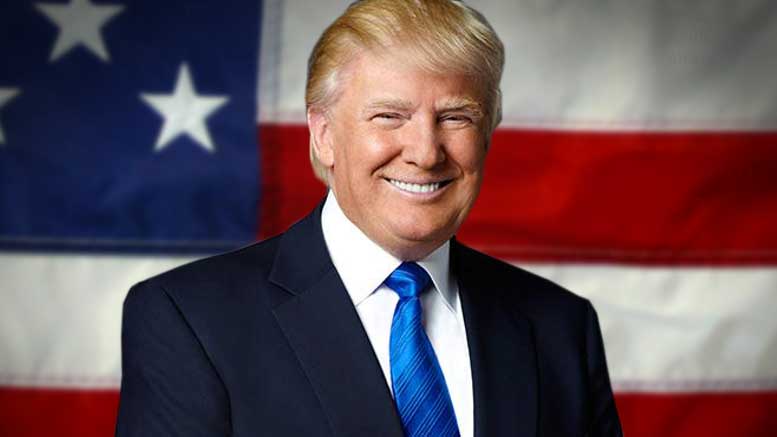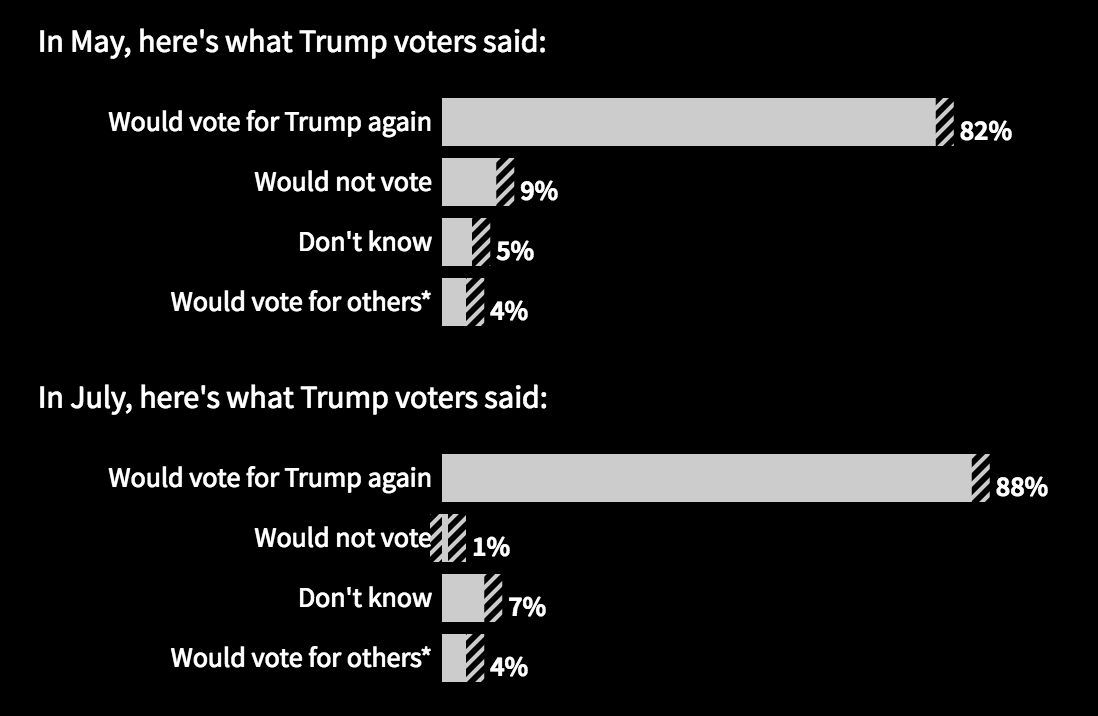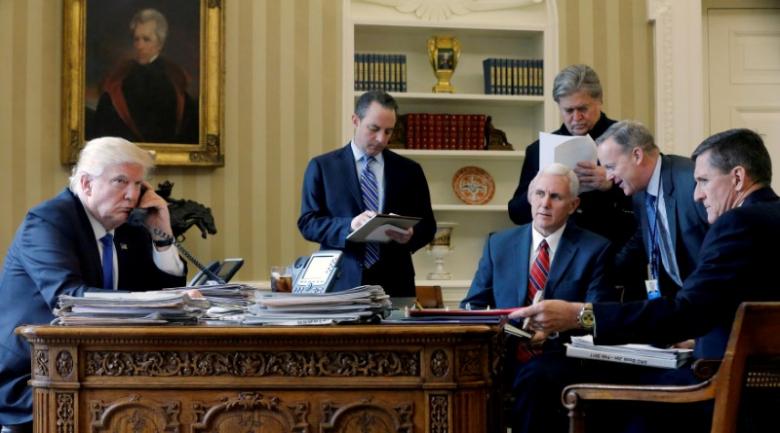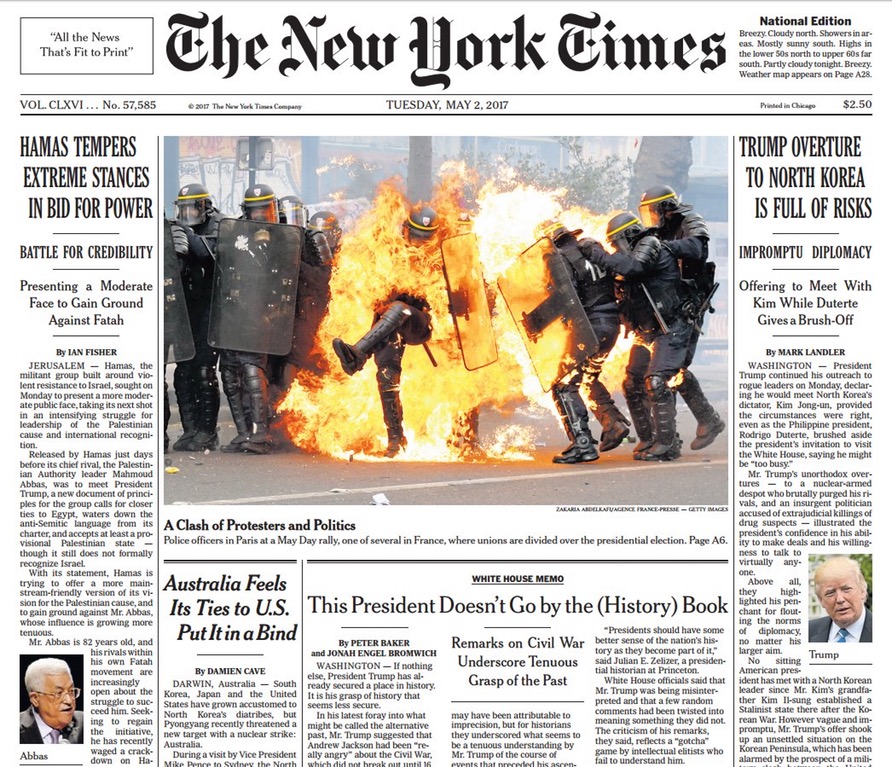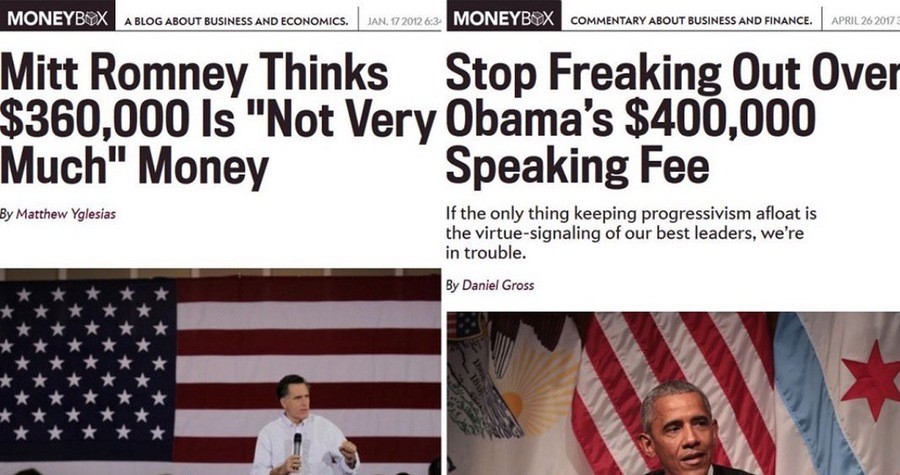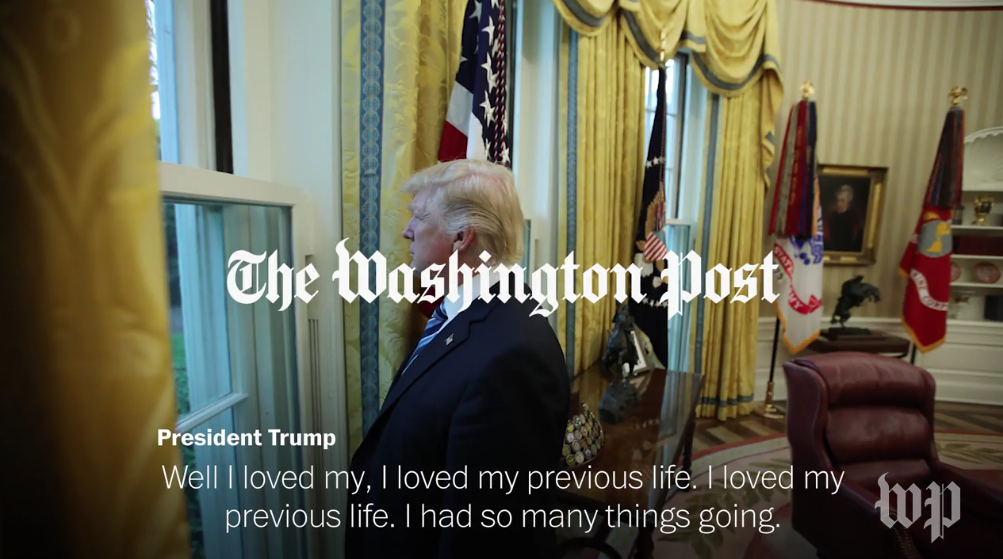Media Spins Positive Trump Poll as Negative: 88 percent of those who voted for Donald Trump in 2016 would do so again, but you wouldn’t know it by the way the media is reporting it!From Accuracy in Media:A new Reuters/Ipsos poll shows that 88 percent of those who voted for Donald Trump in 2016 would do so again, but you wouldn’t know it by the way the media is reporting it. Here’s the headline from Reuters reporting on its own poll; “Do-over: 1 in 8 people who voted for Trump want to change their vote-Reuters/Ipsos poll” Although the headline isn’t patently false, it is deceptive since seven of eight Trump voters said they would vote for him again. From the Reuters story (emphasis mine):
Reuters admits that most people who back him again and that a minority would not, yet it ran a headline that played up the minority opinion in an attempt to create the impression that Trump voters were losing faith in the president when in fact they were significantly more supportive than they were two months ago. Not only that, they ran the following chart which flies in the face of what they were trying to convey. Reuters deserves a F for trying to foist this positive Trump poll on the public as a negative when in fact it showed the president’s strength increasing among us supporters. |
Media Propaganda Of The Day: Reuters Reports Trump Campaign Had 18 Undisclosed Contacts With Russians
Reuters reports the Trump campaign had 18 undisclosed contacts with Russians. Then clearly states in black and white “The people who described the contacts to Reuters said they had seen no evidence of wrongdoing or collusion between the campaign and Russia in the communications reviewed so far”
From Reuters:
Exclusive: Trump campaign had at least 18 undisclosed contacts with Russians – sources
Michael Flynn and other advisers to Donald Trump’s campaign were in contact with Russian officials and others with Kremlin ties in at least 18 calls and emails during the last seven months of the 2016 presidential race, current and former U.S. officials familiar with the exchanges told Reuters.
The previously undisclosed interactions form part of the record now being reviewed by FBI and congressional investigators probing Russian interference in the U.S. presidential election and contacts between Trump’s campaign and Russia.
Six of the previously undisclosed contacts described to Reuters were phone calls between Sergei Kislyak, Russia’s ambassador to the United States, and Trump advisers, including Flynn, Trump’s first national security adviser, three current and former officials said.
Conversations between Flynn and Kislyak accelerated after the Nov. 8 vote as the two discussed establishing a back channel for communication between Trump and Russian President Vladimir Putin that could bypass the U.S. national security bureaucracy, which both sides considered hostile to improved relations, four current U.S. officials said.
In January, the Trump White House initially denied any contacts with Russian officials during the 2016 campaign. The White House and advisers to the campaign have since confirmed four meetings between Kislyak and Trump advisers during that time.
The people who described the contacts to Reuters said they had seen no evidence of wrongdoing or collusion between the campaign and Russia in the communications reviewed so far. But the disclosure could increase the pressure on Trump and his aides to provide the FBI and Congress with a full account of interactions with Russian officials and others with links to the Kremlin during and immediately after the 2016 election.
Media Propaganda Of The Day: Today’s New York Times Front Page
Today’s New York Times front page shows the horrific picture of the French police officer engulfed in flames from a Molotov Cocktail, but the caption is so strangely generic that you have to wonder if the editors tacitly support the rioters (Spoiler: THEY DO)
Full PDF scan:
[pdf-embedder url=”https://commonsenseevaluation.com/wp-content/uploads/2017/05/scannat.pdf”]
Media Propaganda Of The Day: Romney vs. Obama Speaking Fees
The Fake News Media Jabbed Romney for 2012 Speaking Fees; Defends Obama’s in 2017
Slate took then-presidential candidate Mitt Romney to task in early 2012 over his claim that $360,000 in speaking fees in one year was “not very much.” Five-plus years later, the liberal website is now brushing off the one-time, $400,000 speaking fee former President Barack Obama is receiving from investment bank Cantor Fitzgerald.
Matt Yglesias (who is now at Vox) zeroed in on Romney’s hesitance to releases his tax returns in a short January 2012 item for Slate’s Moneybox blog, but soon underlined that the Republican candidate “lacks perspective on what constitutes ‘not very much’ income.”
Media Propaganda Of The Day: Trump Agrees He Was Not Ready To Be President
The Washington Post’s headline is that “Trump now agrees with the majority of Americans: He wasn’t ready to be president” even though Trump does not say anything like that in the article!!!
Donald Trump spent a great portion of 2016 insisting that being president would be easy — at least for him. HuffPost compiled a number of examples of him dismissing the problems that accompany the job as being easily dispatched. Building a wall on the border with Mexico is easy. Beating Hillary Clinton would be easy. Renegotiating the Iran deal would be easy. Paying down the national debt would be easy. Acting presidential? Easy.
To a reporter from Reuters this week, though, Trump had a slightly different assessment of the presidency.
“I love my previous life. I had so many things going. This is more work than in my previous life,” Trump said. “I thought it would be easier. I thought it was more of a … I’m a details-oriented person. I think you’d say that, but I do miss my old life. I like to work so that’s not a problem but this is actually more work.”
It wasn’t the first time that Trump copped to the job being trickier than he anticipated. In November, NBC News reported that Trump had told former House speaker Newt Gingrich that “This is really a bigger job than I thought.” (Gingrich’s response? “…good. He should think that.”) Then there are individual issues. “Nobody knew health care could be so complicated,” he said at one point. At another, he revealed that it took a conversation with the president of China to realize that the situation on the Korean peninsula was “not so easy.”
There’s an element of surprise in Trump’s comments, a hint of bafflement that having responsibility for the welfare of 320 million people entwined in a global economy and international relationships might end up being trickier than running a real estate and branding shop from midtown Manhattan. One group that probably wasn’t surprised that Trump wasn’t prepared? The majority of Americans.
At no point over the course of the 2016 campaign did a majority of Americans think that Trump was qualified for the job of the presidency. Polling from The Post and ABC News shows that views of Trump as unqualified dominated throughout the campaign. The only group that consistently viewed him as qualified to hold the position were the working-class white voters that constituted the core of his support from early in his candidacy.
